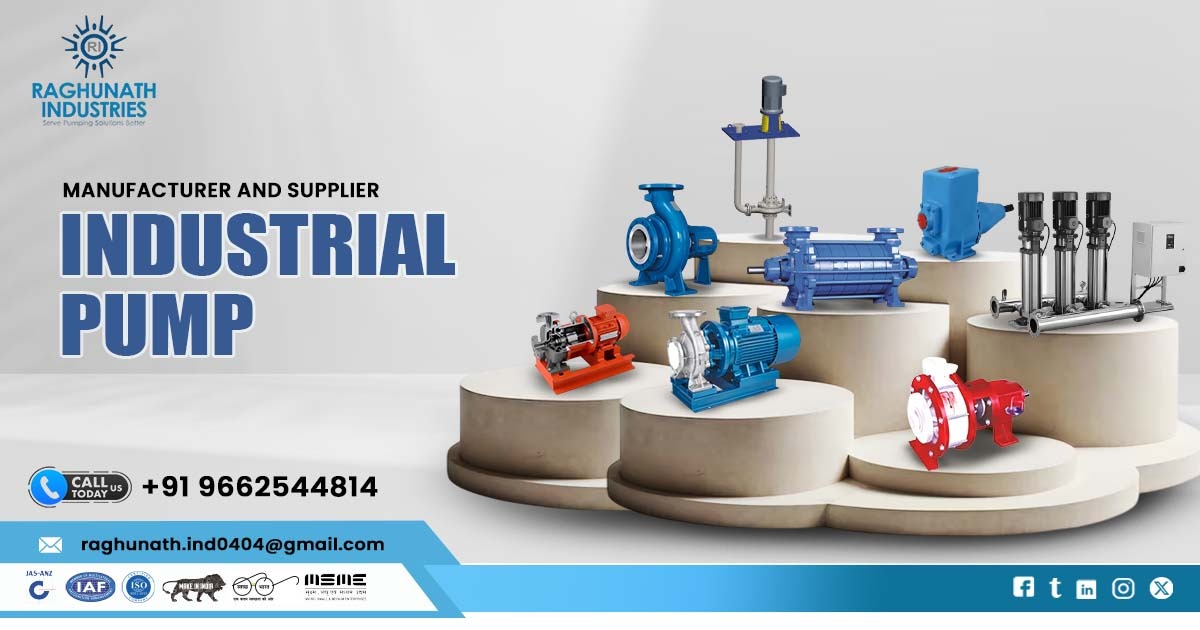Understanding Non-Metallic Chemical Pumps: A Game Changer in Modern Industries
Estimated reading time: 5 minutes
- Corrosion-resistant materials extend pump lifespan.
- Lighter weight enables easy installation and maintenance.
- Energy-efficient designs reduce overall consumption.
- Customizable for specific fluid handling requirements.
- Compliant with health regulations in food processing.
Table of Contents
- The Rise of Non-Metallic Chemical Pumps
- Key Reasons for the Increasing Adoption of Non-Metallic Pumps
- Applications of Non-Metallic Chemical Pumps Across Industries
- The Technological Edge
- Practical Takeaways for Selecting Non-Metallic Chemical Pumps
- Raghunath Industries’ Commitment to Excellence
- Call to Action
- FAQ Section
The Rise of Non-Metallic Chemical Pumps
To fully grasp the relevance of non-metallic chemical pumps, it’s important to consider their foundational role in modern manufacturing. Non-metallic pumps are specifically designed to handle corrosive, abrasive, and viscous fluids that can damage metallic components. This makes them essential in industries such as chemical processing, food and beverage production, and wastewater treatment, where fluid characteristics often pose significant challenges.
Key Reasons for the Increasing Adoption of Non-Metallic Pumps
- Corrosion Resistance: Non-metallic materials like polypropylene and fiberglass-reinforced plastics exhibit outstanding resistance to chemical erosion. This property significantly enhances the lifespan of the pumps, making them a cost-effective choice over time.
- Weight Advantages: Non-metallic chemical pumps are generally lighter than their metallic counterparts, which simplifies installation and maintenance. This is particularly beneficial in environments where pump mobility or reallocation is required.
- Flexibility and Versatility: Non-metallic pumps can be engineered to perform efficiently under varying conditions, allowing for customization to meet specific pumping requirements in different applications.
- Energy Efficiency: Many non-metallic pumps, particularly self-priming non-clog mud pumps, are designed for energy efficiency, reducing overall energy consumption while maximizing output.
Applications of Non-Metallic Chemical Pumps Across Industries
1. The Chemicals Industry
In the chemicals industry, non-metallic pumps are indispensable for transporting aggressive fluids—acids, alkalis, and solvents—without the risk of leaks that could lead to catastrophic outcomes. Using magnetic drive sealless pumps allows for safe handling of these fluids, while minimizing risk.
2. Food and Beverages
Food-grade non-metallic pumps are compliant with health regulations, ensuring safe transfer of liquids without contamination. These pumps are used in various processes, including food processing and beverage bottling.
3. Water and Wastewater Treatment
In wastewater treatment plants, non-metallic pumps can handle corrosive or abrasive materials commonly found in sewage. Raghunath Industries specializes in sewage pumps (both dry and wet series), which provide effective solutions for water management.
4. Pulp and Paper
The pulp and paper industry relies on consistent flow rates for pulp processing, making medium-consistency pumps a key asset. Non-metallic options minimize the risk of corrosion and wear, enhancing pump performance.
The Technological Edge
Recent advancements in pump technology have led to innovations that further optimize the performance of non-metallic pumps. For instance:
- Multistage Pumps: Applications requiring high pressure can benefit from non-metallic multistage pumps which provide a pressure boosting system to elevate fluid flow through a series of stages.
- Vertical Submerged and Sump Pumps: These pumps are engineered for use in deep pits or tanks, offering flexibility for diverse industrial applications, including mining and construction.
It’s essential to keep in mind that choosing the right pump technology plays a major role not only in efficiency but also in compliance with industry regulations and ecological standards.
Practical Takeaways for Selecting Non-Metallic Chemical Pumps
- Know Your Fluids: Understand the chemical properties of the fluids being pumped, including viscosity, temperature, and corrosiveness, to select the appropriate material for your pump.
- Consider Your Environment: Evaluate the physical installation site for factors like temperature, space constraints, and potential fluctuations in fluid flow.
- Total Cost of Ownership: While upfront purchase price is important, consider long-term costs including maintenance, energy use, and replacement parts. Non-metallic pumps can often save money over time due to their durability.
- Future-Proofing: Ensure that any pump system is adaptable to future needs. Additional features, such as variable speed drives, can enhance operational flexibility.
Raghunath Industries’ Commitment to Excellence
At Raghunath Industries, our commitment is rooted in providing high-quality pumping solutions that meet the distinct needs of various industries. Whether you are looking for:
- Polypropylene Pumps for corrosive liquids,
- Self Priming Non-Clog Mud Pumps for debris-laden fluids,
- Pressure Boosting Systems for effective fluid transport,
we have a series of models and configurations designed to enhance your operational efficiency.
Call to Action
Understanding the significance of non-metallic chemical pumps is fundamental for any business leader aiming to optimize their operations in demanding environments. To explore our full range of products and the associated services provided by Raghunath Industries, we encourage you to visit our website at Raghunath Industries or contact us directly for expert advice on the best pumping solutions tailored for your industry challenges.
Don’t hesitate to embrace the advancements in non-metallic pumping technology to push your operations forward while ensuring safety and efficiency!
FAQ Section
- What are non-metallic chemical pumps? Non-metallic chemical pumps are specifically designed to handle corrosive, abrasive, and viscous fluids, primarily using materials like polypropylene and fiberglass-reinforced plastics.
- Why are they preferred in certain industries? Their corrosion resistance, lighter weight, and energy efficiency make them ideal for industries dealing with hazardous fluids, such as chemicals, food, and wastewater.
- How do I select the right pump? Consider factors such as the chemical properties of the fluids, environmental conditions, and overall cost of ownership, including maintenance and energy consumption.

